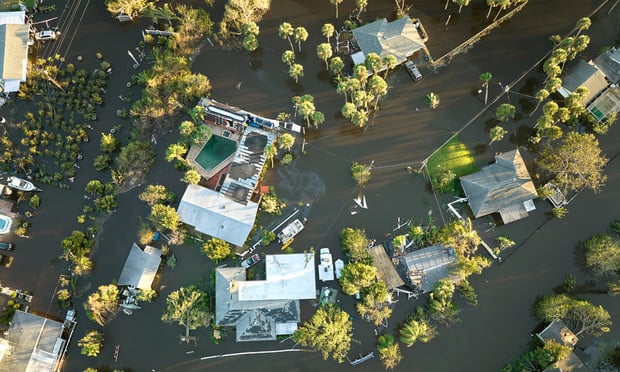NU Online News Service, May 31, 3:16 p.m. EDT
As the U.S. prepares for what forecasters say will be another above-average hurricane season, Fitch Ratings says first-quarter global catastrophes and the spring tornadoes have already exhausted many reinsurers' 2011 catastrophe budgets.
In a report on the 2011 hurricane season, Fitch says insurers and reinsurers could face rating actions in the event of hurricane losses depending on the size of the loss relative to capital, options pursued to replenish capital and underwriting prospects going forward.
Fitch says, "While (re)insurers in Fitch's rating universe have withstood recent losses, a hurricane that makes landfall and generates substantial insured losses could represent a more material strain on individual company capital positions."
Fitch notes that predictions from the National Oceanic and Atmospheric Administration, Tropical Storm Risk, Colorado State University, WSI Corp. and AccuWeather all point to an above-average 2011 hurricane season, although predictions have been revised downward moderately. "Modest cooling of Atlantic Ocean surface temperatures and a somewhat diminished La Nina system are commonly cited contributing factors in the declining forecasts," Fitch says.
However, Fitch adds that forecasts are calling for more landfalling events along the Atlantic and Gulf coasts compared to 2010.
Fitch says it is unknown what impact Risk Management Solutions' (RMS) revised model will have on pricing. "(Re)insurers are currently evaluating new model results and it is unclear how this additional information will affect pricing and management of aggregate exposures," the rating agency says.
The revised model, Fitch explains, takes into account recent claims data on how hurricanes impact inland areas well beyond the coastlines. Fitch notes that in 2008, Hurricane Ike tracked across several northern Midwest states days after the storm made initial landfall. "The key element taken into consideration in the updated RMS model is the rate at which a hurricane decays after initially making landfall," Fitch says.
But the rating agency says it is difficult to forecast the pricing impact because regulators retain some control over rate increases, and insurers often combine model analyses, and not all other modelers have increased their loss assumptions.
Fitch also comments on Florida's insurance market as hurricane season approaches, noting that the new property insurance bill (SB 408) that was recently signed into law is a "meaningful indication of the political will to establish a more viable market for private insurers."
But Fitch adds that the bill "falls far short of fully addressing the inadequate premium rate levels and competitive imbalances within the state." As an example, Fitch notes that nothing in the bill prevents state-run Citizens Property Insurance Corp. from competing with the private market.
Want to continue reading?
Become a Free PropertyCasualty360 Digital Reader
Your access to unlimited PropertyCasualty360 content isn’t changing.
Once you are an ALM digital member, you’ll receive:
- Breaking insurance news and analysis, on-site and via our newsletters and custom alerts
- Weekly Insurance Speak podcast featuring exclusive interviews with industry leaders
- Educational webcasts, white papers, and ebooks from industry thought leaders
- Critical converage of the employee benefits and financial advisory markets on our other ALM sites, BenefitsPRO and ThinkAdvisor
Already have an account? Sign In Now
© 2024 ALM Global, LLC, All Rights Reserved. Request academic re-use from www.copyright.com. All other uses, submit a request to [email protected]. For more information visit Asset & Logo Licensing.








